PHÖNIX Grenzstrahlentherapie-Röhre Typ R10-25
Grenz ray tube for therapeutic use
Tube à rayons Grenz à usage thérapeutique
VEB Phönix Röntgenröhrenwerk Rudolstadt, Deutschland, 1947-1961.

Les rayons Grenz, également appelés « rayons-limite » ou « rayons de
Bucky » (du nom de Gustav Peter Bucky, un médecin et physicien germano-américain qui a découvert
ces rayons en 1925), sont des rayons X « mous », de faible énergie, de faible pouvoir
de pénétration, et de grande longueur d'onde par rapport aux rayons X durs. Ils sont utilisés pour traiter
certaines affections de la peau telles que l'eczéma, le psoriasis et autres.

Grenz rays, also known as “limit rays” or “Bucky rays” (named after Gustav Peter Bucky,
German-American physician and physicist who discovered these rays in 1925), are “soft” X-rays with
low energy, low penetrating power, and a long wavelength compared to hard X-rays. They are used to treat certain
skin diseases such as eczema, psoriasis and others.
• Otto Glasser, The Physical Foundation of Grenz-Ray Therapy, RADIOLOGY, Journal of the Radiological Society of North America, 18:713-725, April, 1932.
• Mark B. Hollander, Grenz Rays, Journal of Investigative Dermatology, Vol. 21, Issue 1, July 1953.
Fiche technique • Data sheet • Datenblatt: R10_25.pdf.

Hauteur • Height • Höhe : 246 mm • 9" 3/4
Diamètre • Diameter • Durchmesser : 56 mm • 2" 1/4
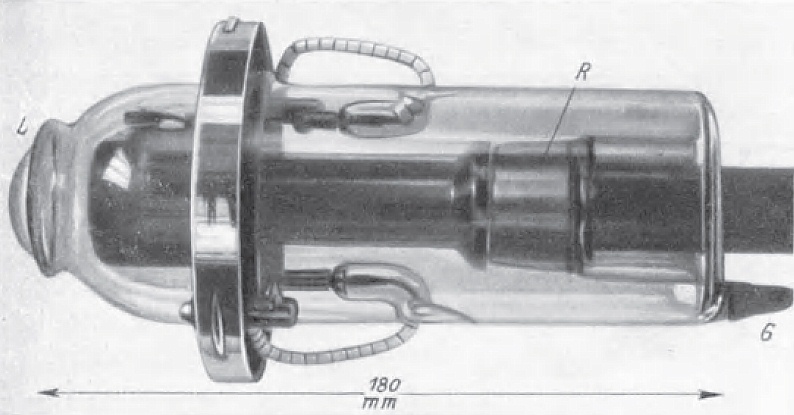
Grenz-ray tube with Lindemann glass window (Siemens-Reiniger Co.)
L: Lindemann window; R: Copper ring sealed to the glass; G: Rubber cap for the protection of the seal off.
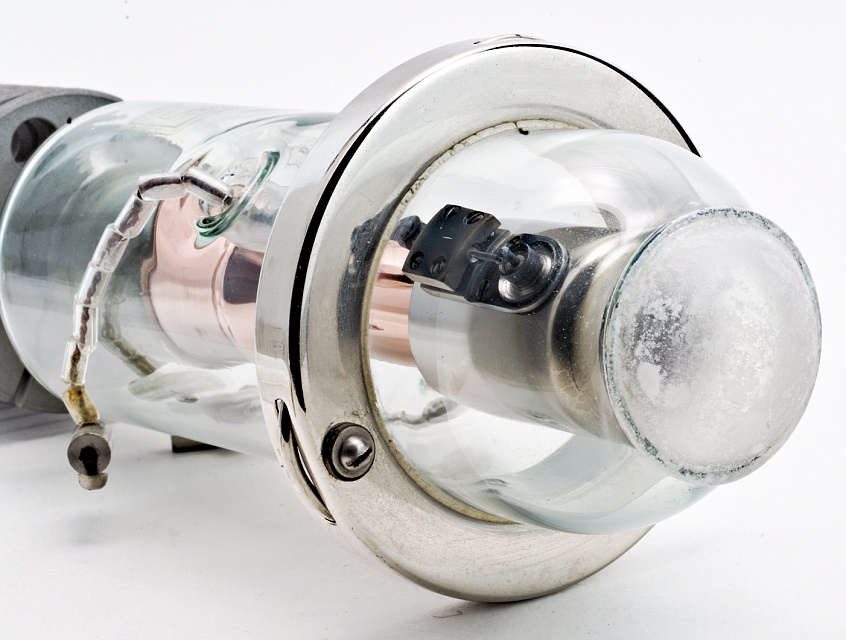
Lindemann glass (lithium borate glass) window
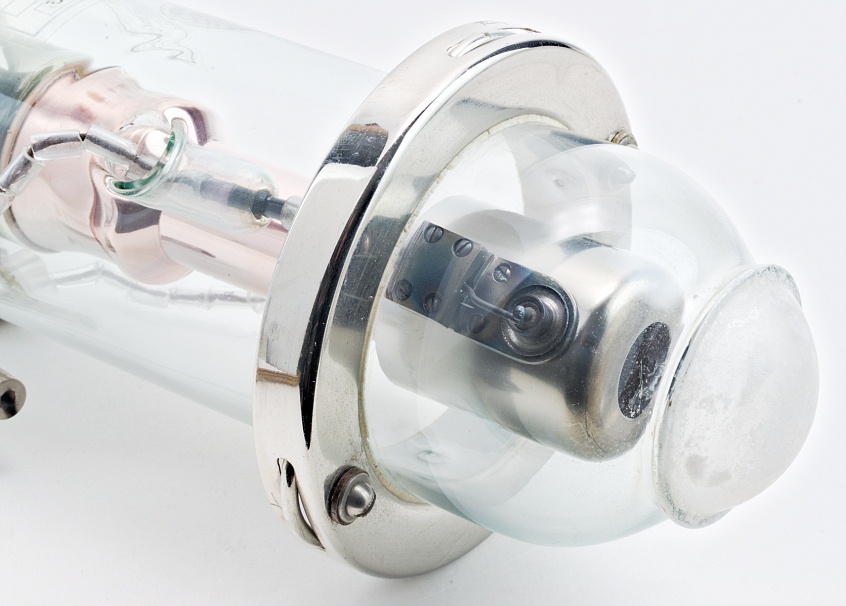
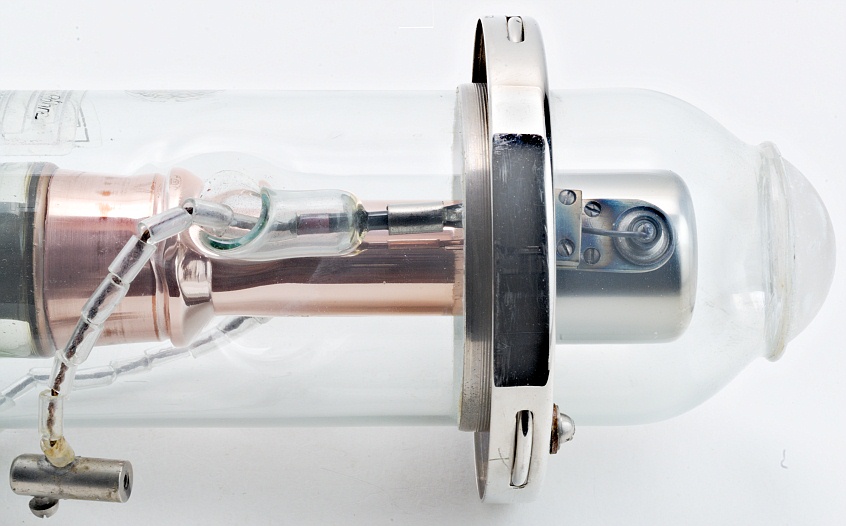
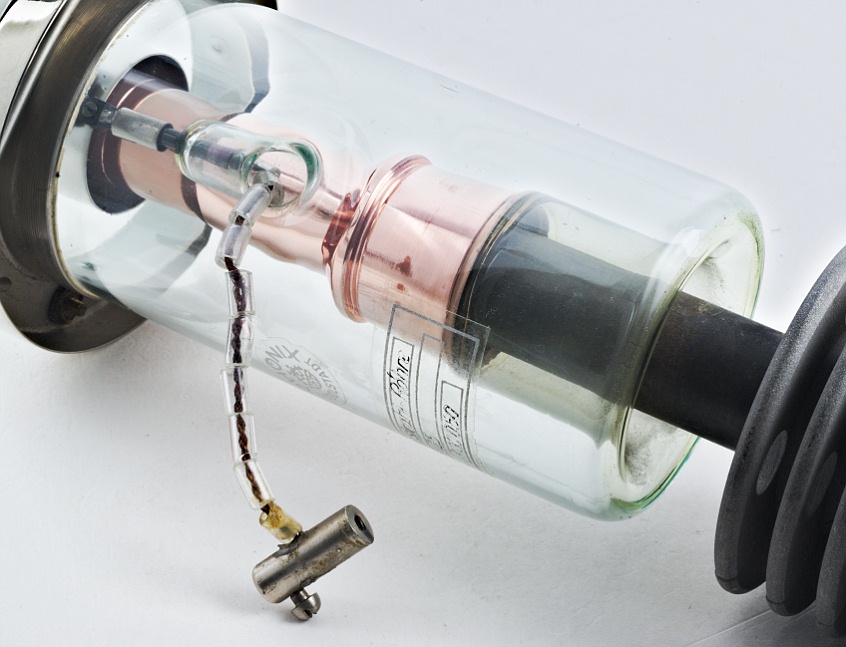

Le contenu de ce site est sous copyleft  The content of this site is under copyleft
The content of this site is under copyleft  Der Inhalt dieser Website steht unter Copyleft
Der Inhalt dieser Website steht unter Copyleft
